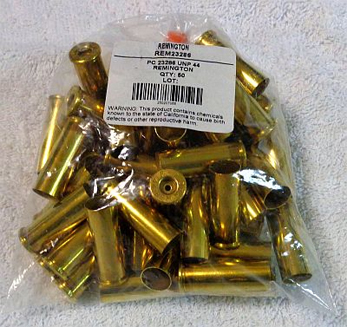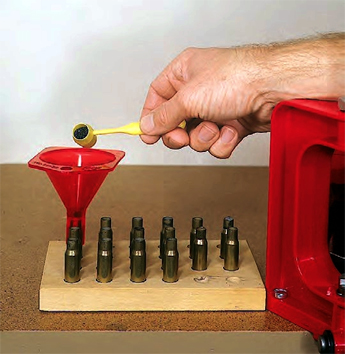
There is no question that the brass you select is among the most important items in your reloading supplies. For those of you who are new to the world of reloading, “brass” refers to the cartridge case in which you load your primer, powder, and projectile. Choosing the perfect brass is one of the more challenging steps when getting started in reloading, as finding a brass you really like often comes down to trial and error.
If you are reloading just for “plinking”, the brass you select only needs to be carefully inspected for cracks, bulges or any other signs of pressure damage that has weakened the case. If you are a bench rest shooter desiring the most consistently accurate ammo possible you need to adhere to a few more considerations in your brass selection. Here are a few quick tips that will help you find the best brass for your intended use:
Staying Safe
Brass cartridges are not designed for infinite firings and will eventually fail, so it’s best to only work with those cartridges for which you have a known firing history. Brass rarely suffers catastrophic failure but even small problems can cause complications in your firearm. Thus, it is highly recommended that you only reload new brass you have fired yourself or brass that is reputably known to be “once fired”.
Choosing Brass
Reloaders all have different opinions when it comes to the “perfect” brass. Finding the one you like most will require that you test different manufacturers and setups. However, matching your brass by production run will help to ensure consistency across cartridges, and sticking with familiar manufacturers such as Remington, MagTech and Winchester is always a good bet when quality is a concern. Verify manufacturers by checking the headstamp at the bottom of the cartridge.
Brass Production
While manufacturers strive to build consistency into their brass, changes do occur in the production line. It is important to remember that two same-caliber Remington cartridges are not guaranteed to have the same case capacity, because they may have been manufactured in different runs or at different times. Weighing each of your cartridges to ensure they are within 2 to 3 tenths of a grain is a recommended practice for highly accurate rounds.
There’s much more to be learned about brass and other reloading supplies. If you’re interested in getting started, we’d love to have you at one of our free monthly reloading workshops. And for more information or inquiries please visit www.TitanReloading.com or contact us at 262.244.7023.

